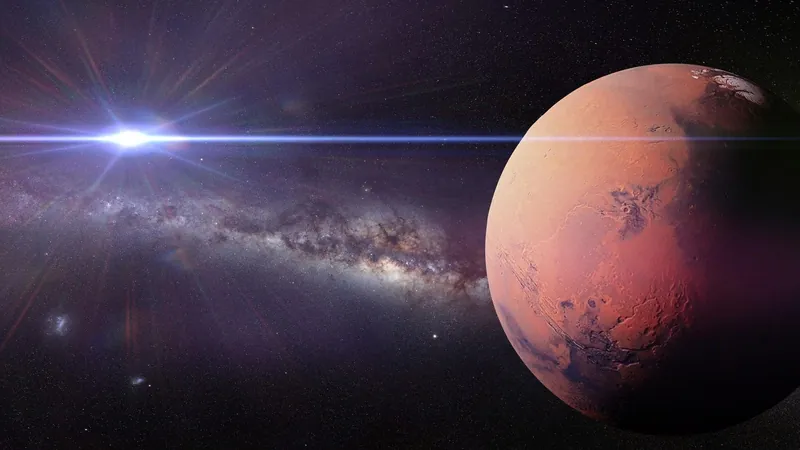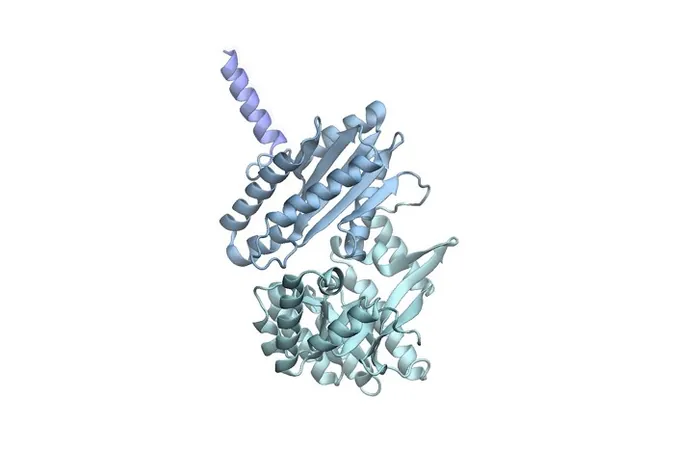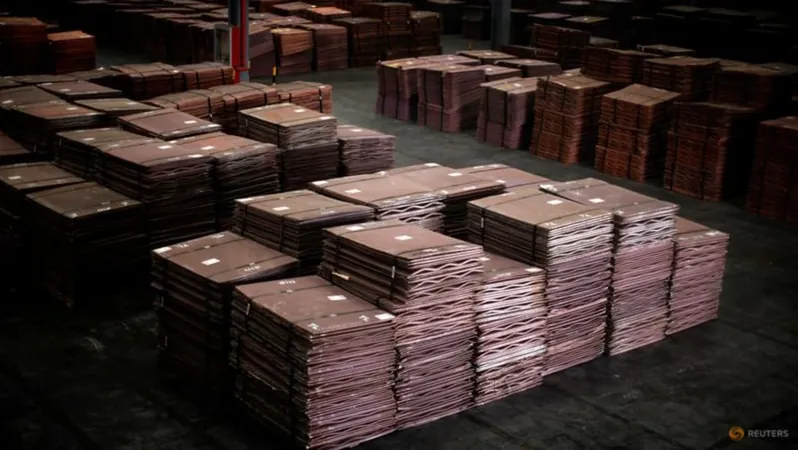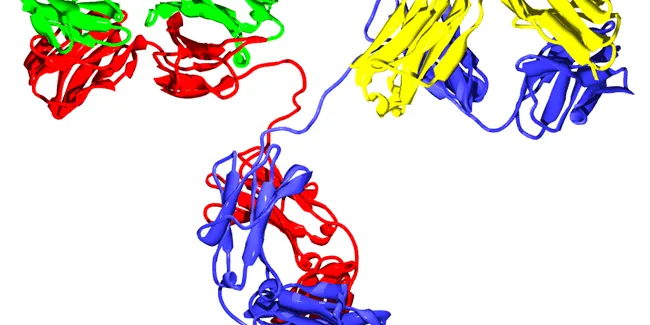
Revolutionary Robotic Badger Bioreactors: Pioneering Our Solar System Colonization!
2024-09-28
Author: Jia
Introduction
In an exciting twist for space exploration, astrobiologist Charles Cockell from the University of Edinburgh has put forth a groundbreaking vision that involves using engineered microbes and robotic machines to colonize the moon, Mars, and even the icy moons of Saturn and Jupiter. For decades, these resilient microorganisms have demonstrated their capabilities on Earth, mainly in the mining industry, where they efficiently extract about 25% of the world’s gold and copper with minimal environmental impact.
The Vision
But now, Cockell believes that these tiny powerhouses can play a pivotal role in transforming our solar system into habitable zones for humanity. He suggests bioengineering Earth-based microbes to create hardy organisms resistant to extreme conditions. This includes intense radiation, extreme temperature variations, and the vacuum of space—challenges that have long been the bane of space missions.
MUNCHers: The Robotic Workforce
Imagine an army of robotic machines known as MUNCHers (Microbial Utilization of Carbonaceous Asteroids for High-value products), varying in size from a badger to a large truck, traversing through asteroids and planetary bodies. With mandible-like structures, these robots will crush and process raw cosmic materials, transforming them into valuable feedstocks necessary for constructing space habitats.
Sustainable Operations
The MUNCHers will not just rely on conventional energy sources; they will be powered by cutting-edge nuclear and solar technologies, ensuring a sustainable operation even in the harshest environments of space. These robots will utilize asteroidal or planetary ice to generate fluids for their onboard bioreactors, which will convert crushed volcanic basalt into essential materials—ranging from metals to potential building components for future alien settlements.
A New Approach to Space Resource Utilization
Cockell emphasizes that this innovative approach isn't focused on bringing materials back to Earth, as many might presume. Instead, it's about creating a self-sufficient human presence in the cosmos, marking a monumental departure from traditional approaches to space exploration. He foresees the initial application of these technologies being the extraction of nickel, copper, and iron from lunar rocks, but the possibilities extend to rare earth elements that are critical for advanced technology.
Microbes as Chemical Factories
Microbes, described by Cockell as "natural chemical factories," have evolved over billions of years, mastering the art of chemical transformation. By leveraging their capabilities, we can convert organic compounds from carbonaceous asteroids into a variety of materials, including plastics, pharmaceuticals, and construction materials suitable for space colonies.
Conclusion
With the potential to revolutionize how we think about resource utilization in space, the MUNCHers could vastly accelerate our timeline for establishing a human presence beyond Earth. Instead of waiting for decades to transport essential materials from our home planet, we could enable outposts to become self-sustaining locales capable of support for future colonists. This vision may seem like science fiction, but it represents a monumental leap in human ingenuity and resilience. As thousands of robotic MUNCHers carefully navigate the asteroid belt and beyond, they might just turn our dreams of becoming a multi-planetary species into an achievable reality. The age of space colonization is upon us, and it looks more promising than ever!



 Brasil (PT)
Brasil (PT)
 Canada (EN)
Canada (EN)
 Chile (ES)
Chile (ES)
 Česko (CS)
Česko (CS)
 대한민국 (KO)
대한민국 (KO)
 España (ES)
España (ES)
 France (FR)
France (FR)
 Hong Kong (EN)
Hong Kong (EN)
 Italia (IT)
Italia (IT)
 日本 (JA)
日本 (JA)
 Magyarország (HU)
Magyarország (HU)
 Norge (NO)
Norge (NO)
 Polska (PL)
Polska (PL)
 Schweiz (DE)
Schweiz (DE)
 Singapore (EN)
Singapore (EN)
 Sverige (SV)
Sverige (SV)
 Suomi (FI)
Suomi (FI)
 Türkiye (TR)
Türkiye (TR)
 الإمارات العربية المتحدة (AR)
الإمارات العربية المتحدة (AR)